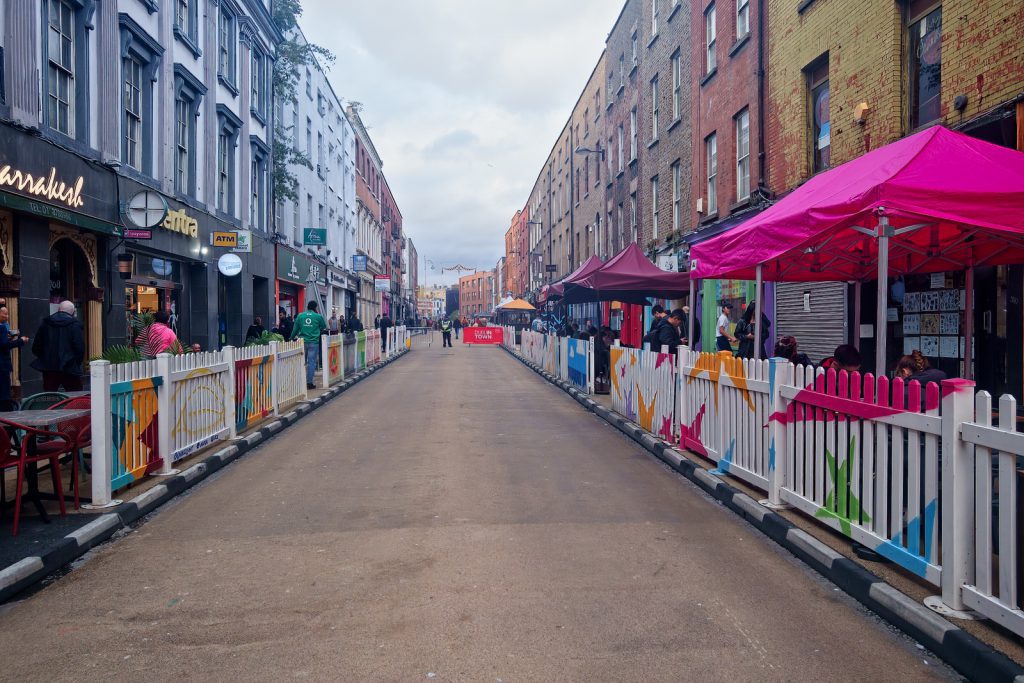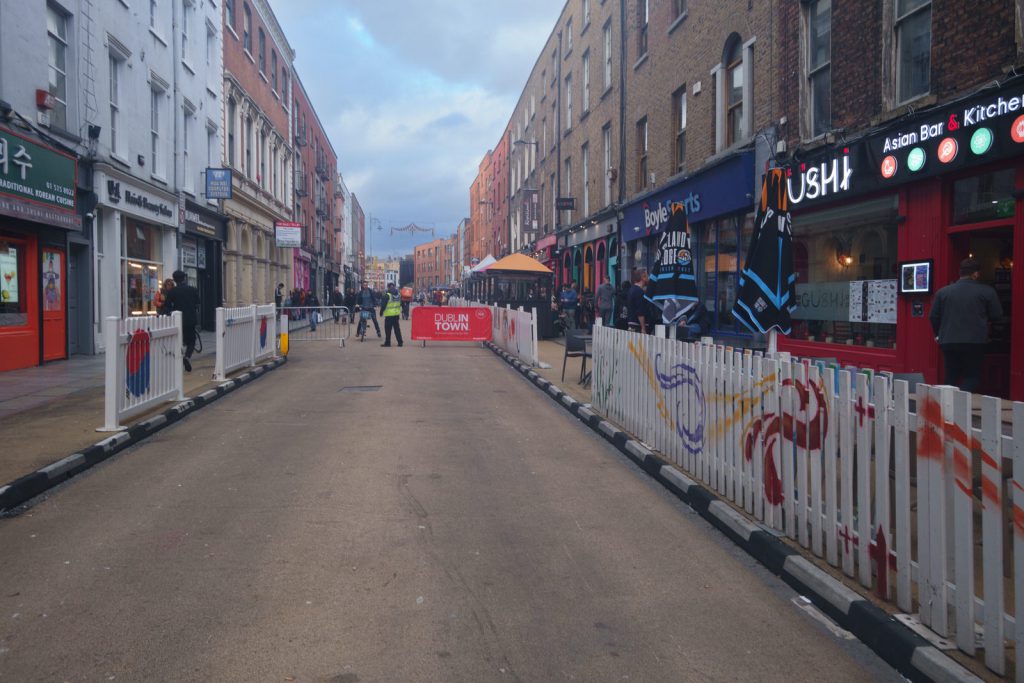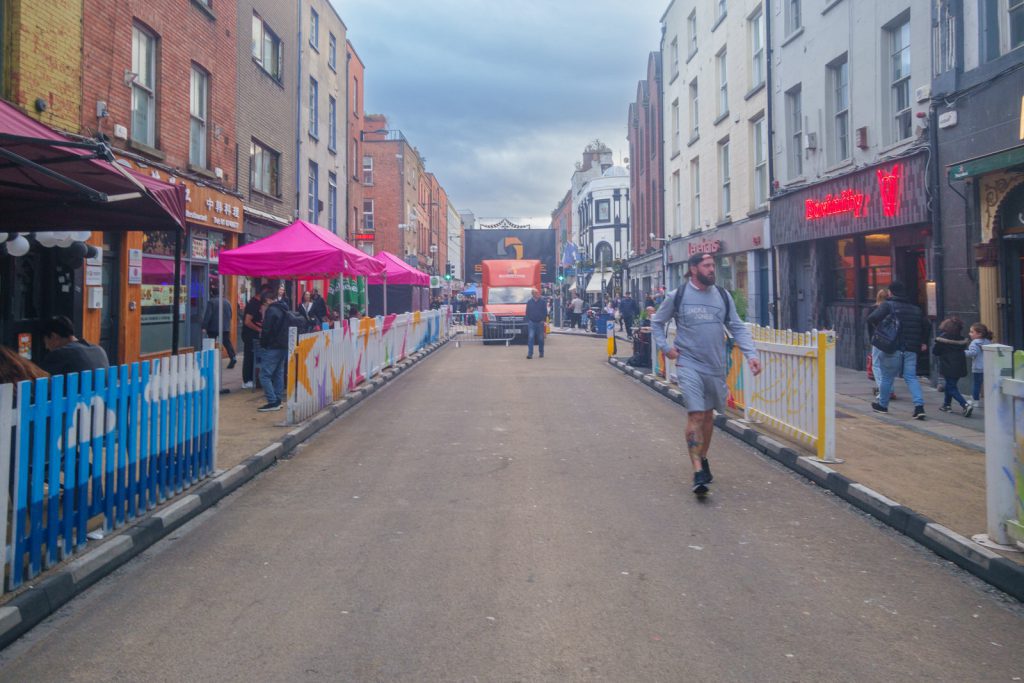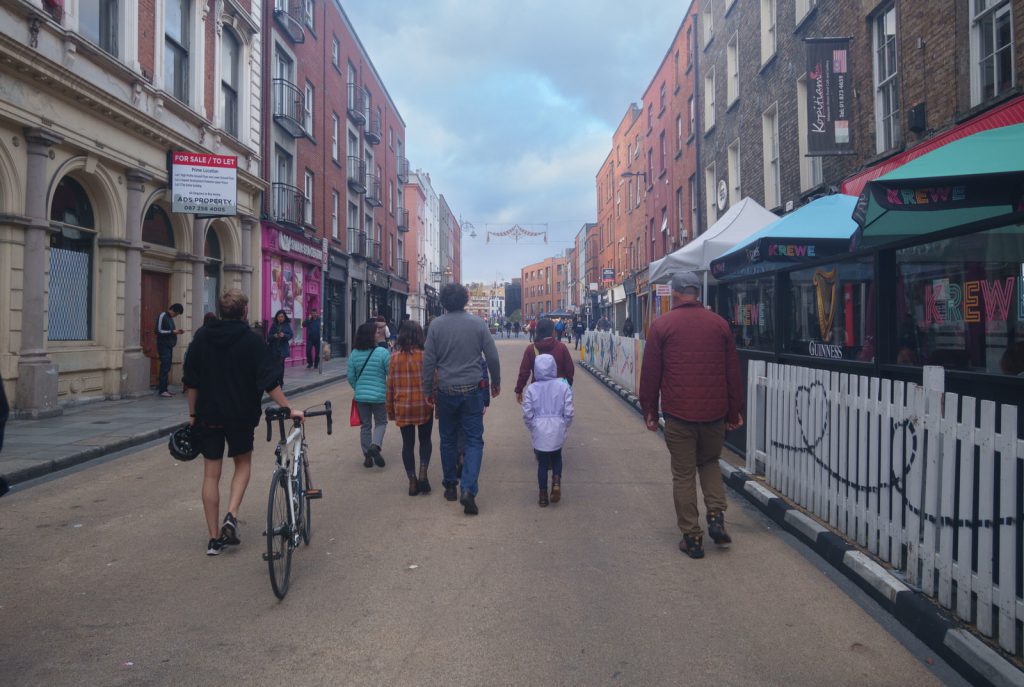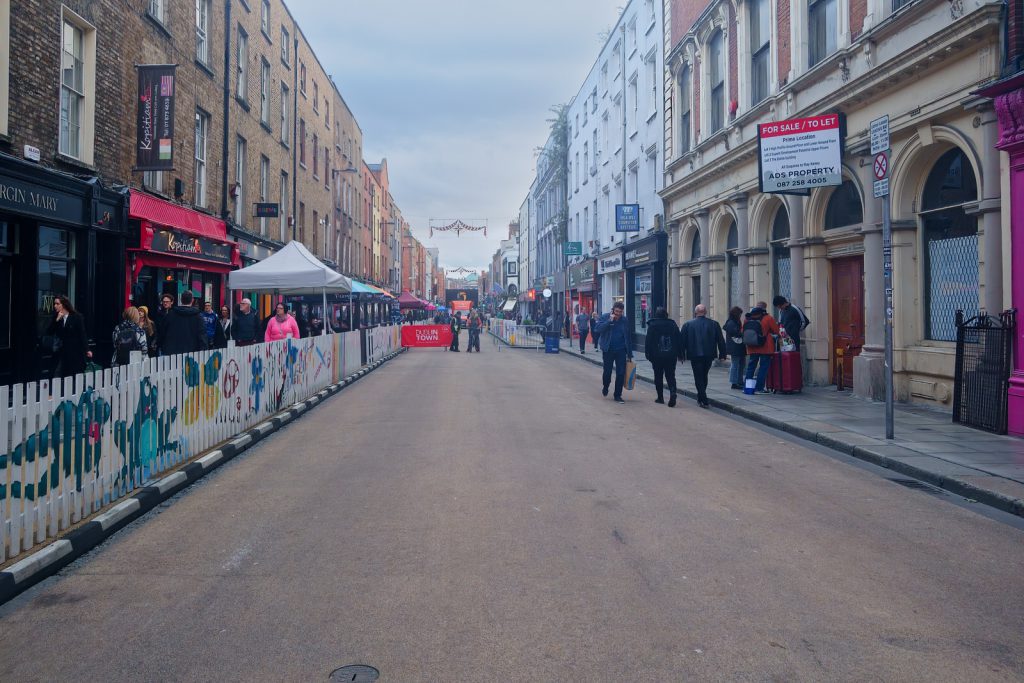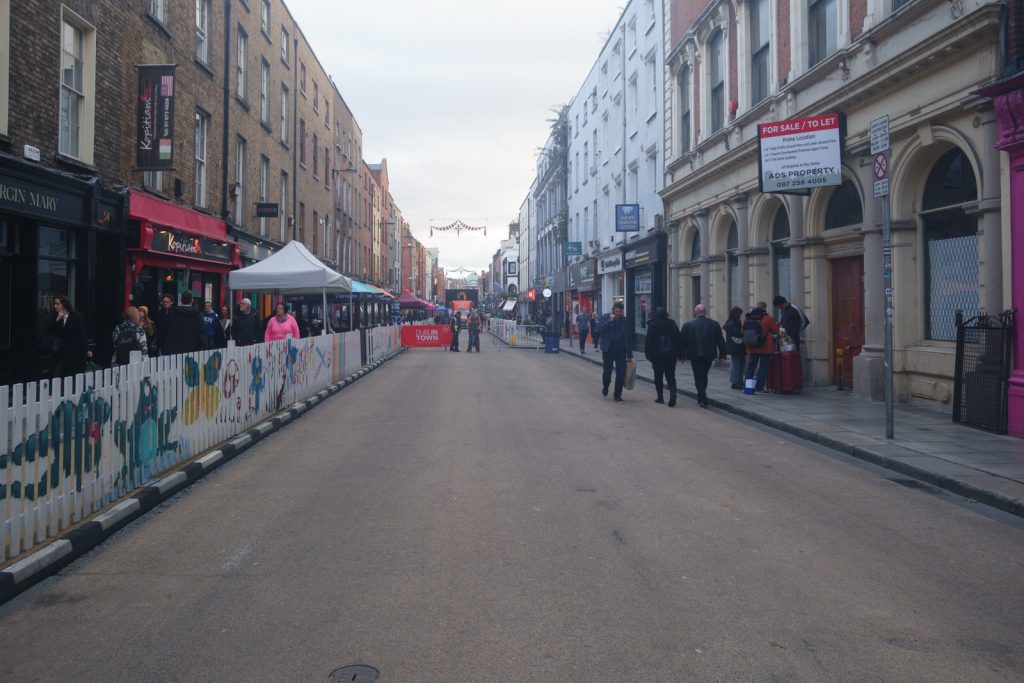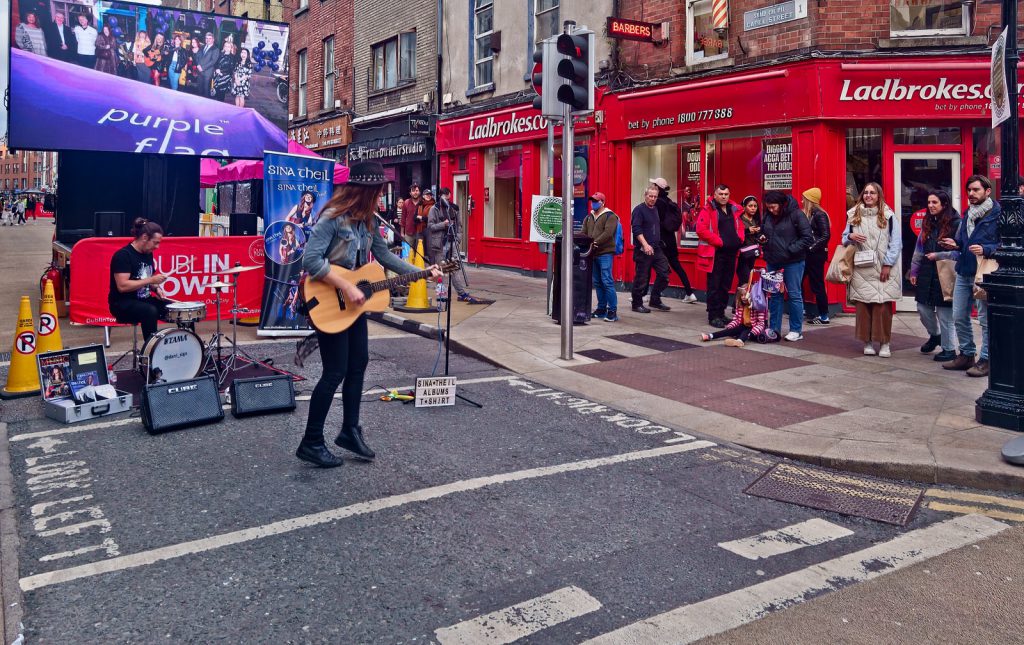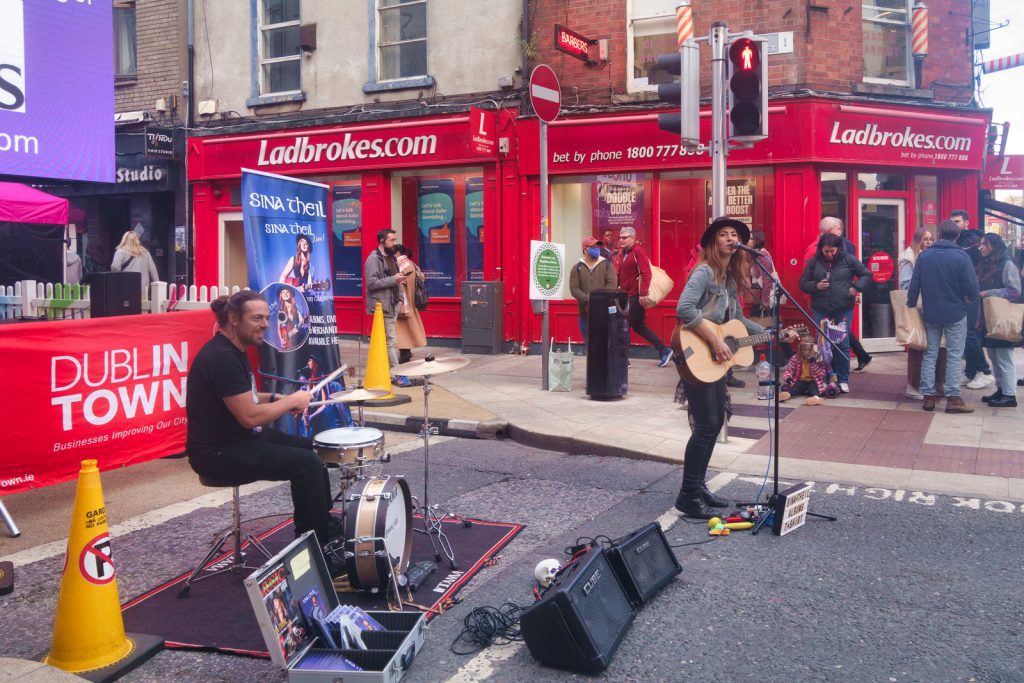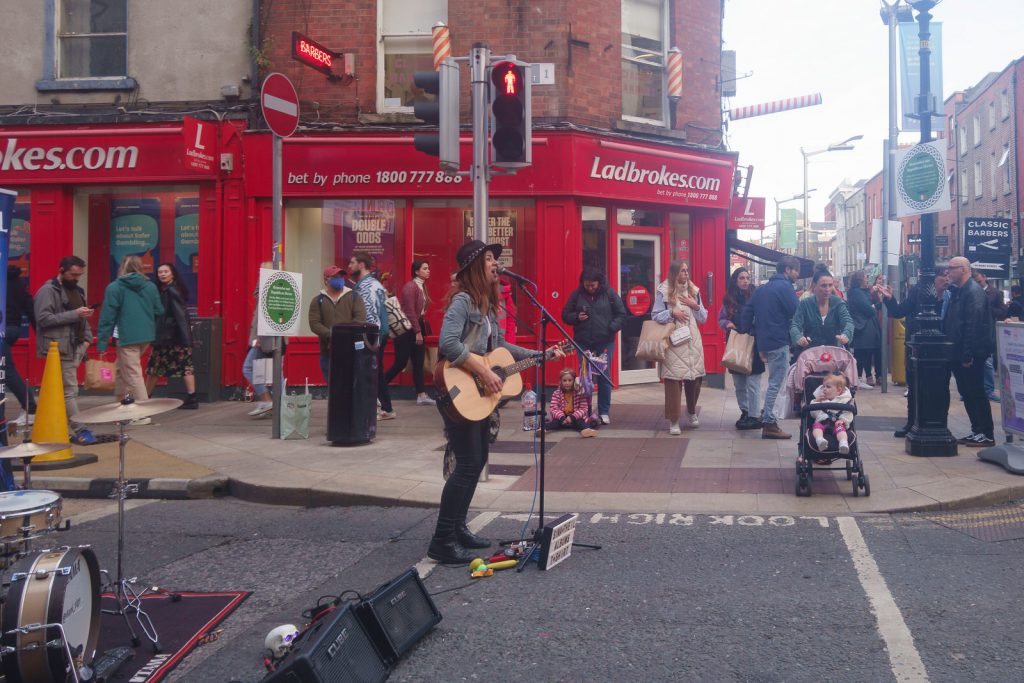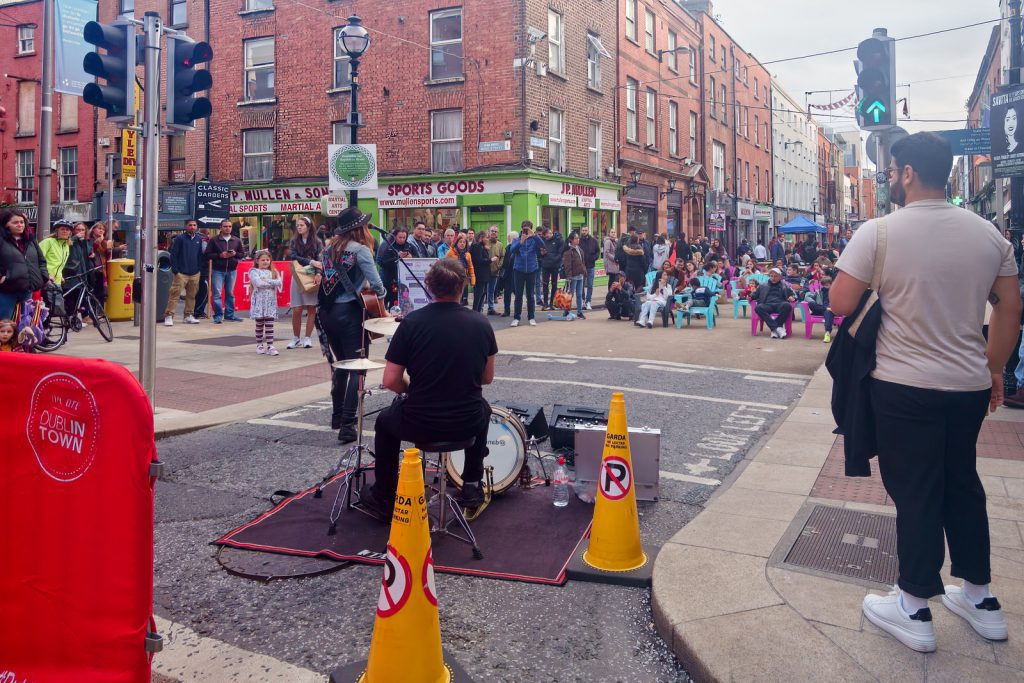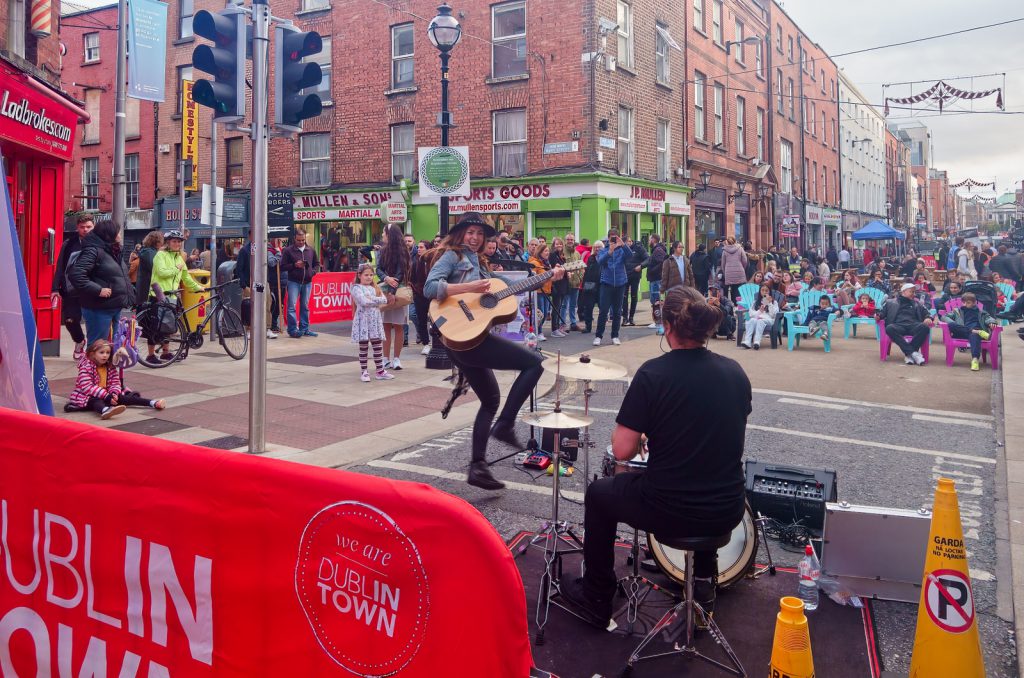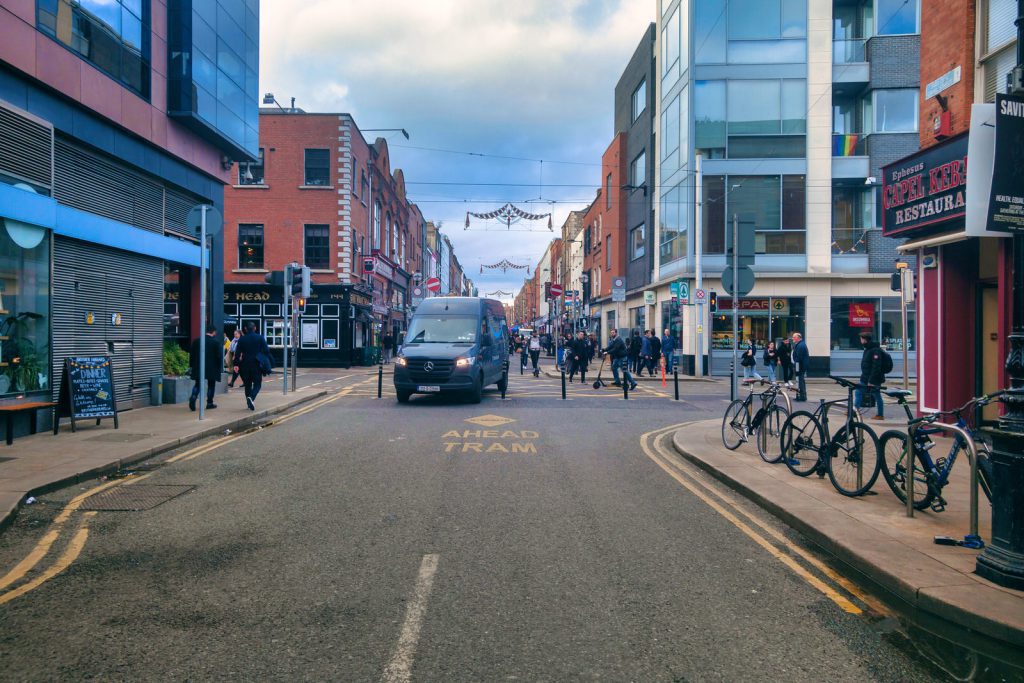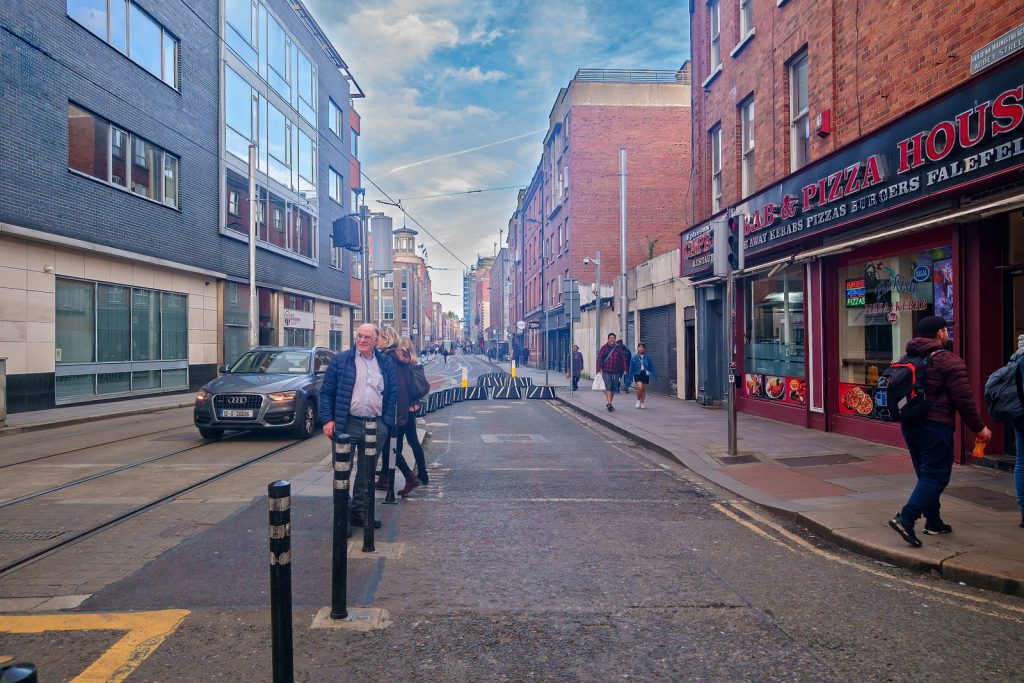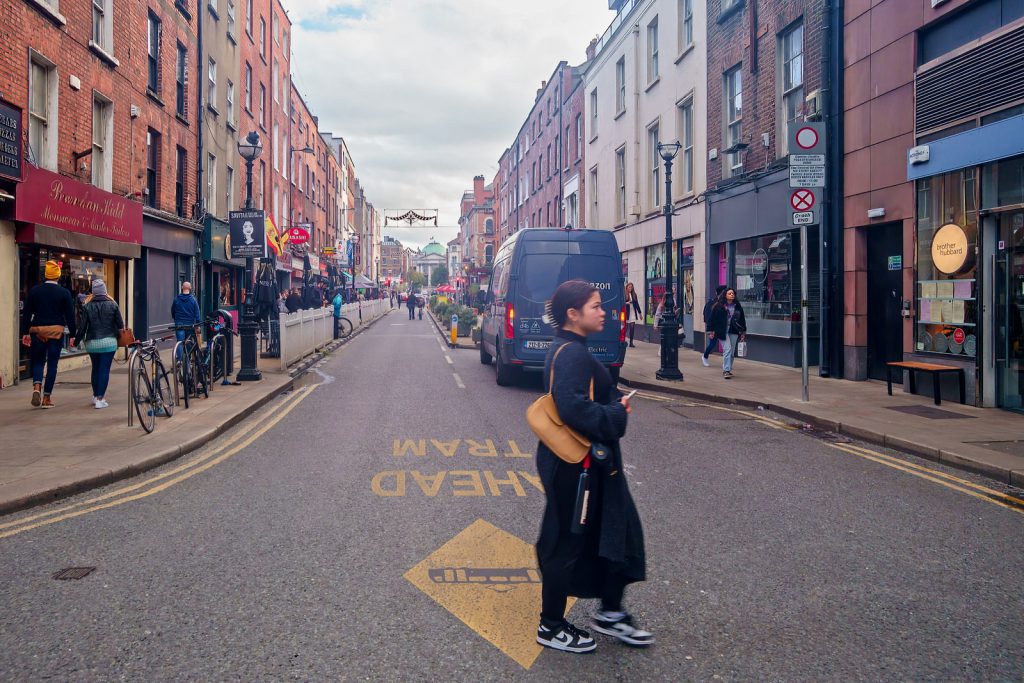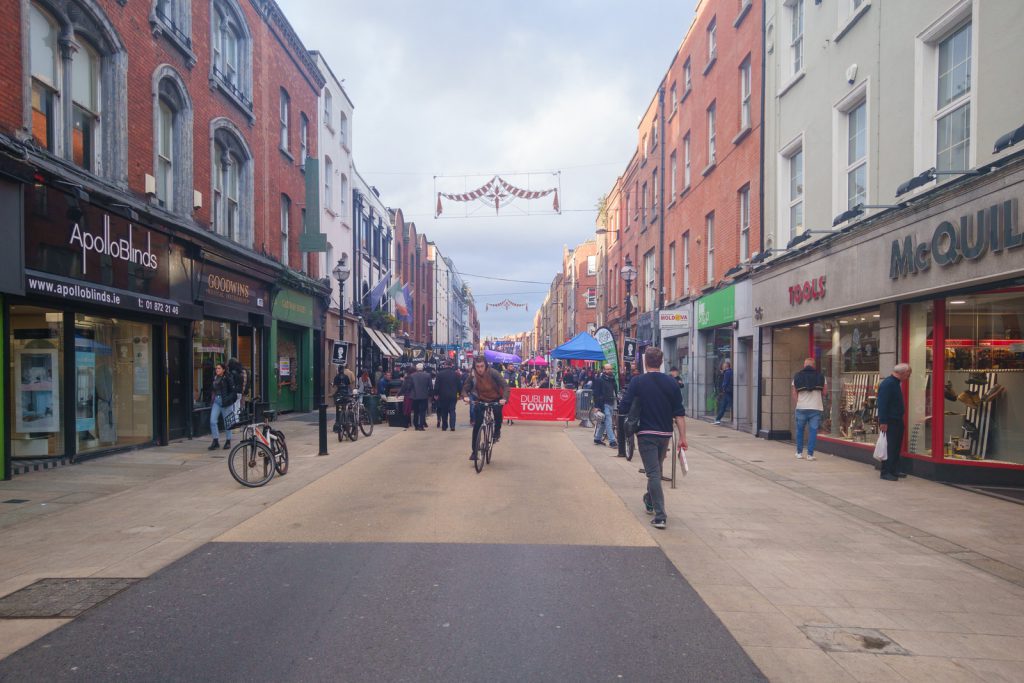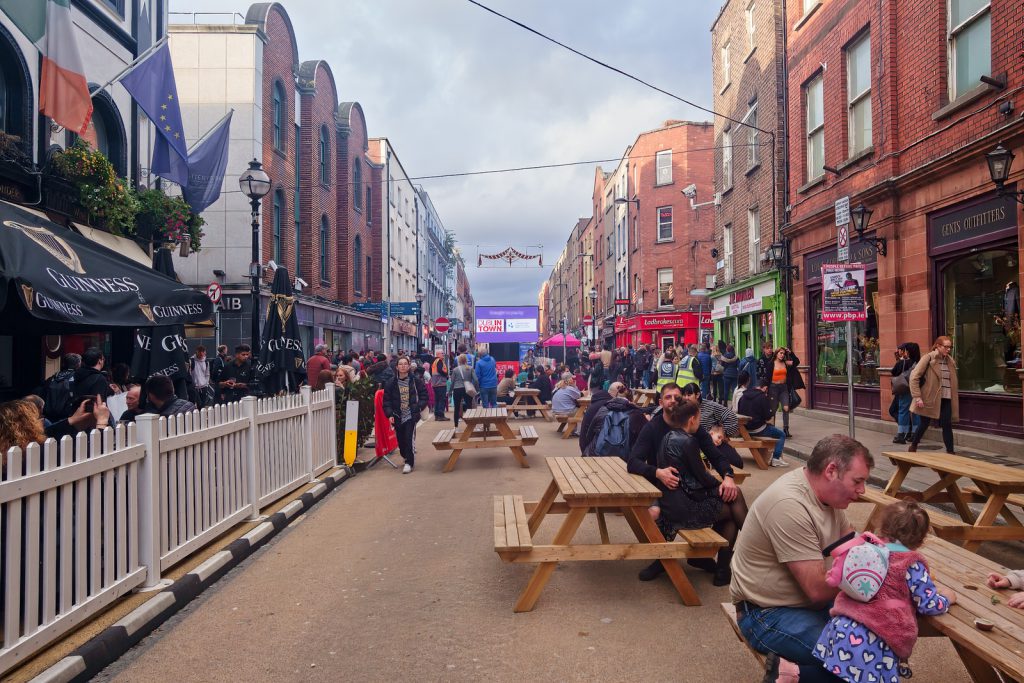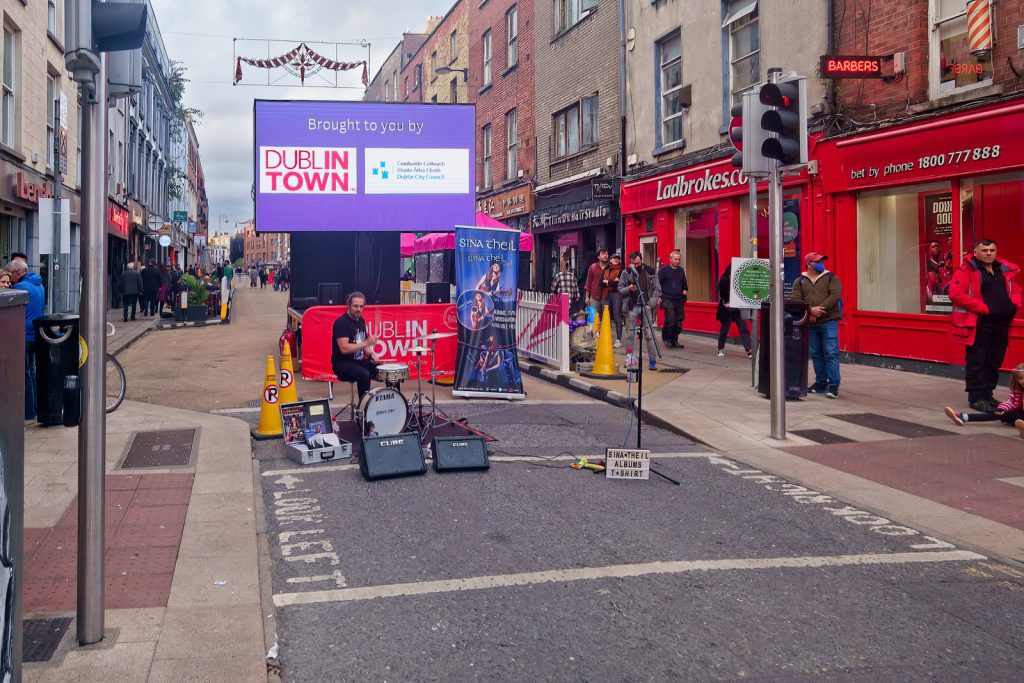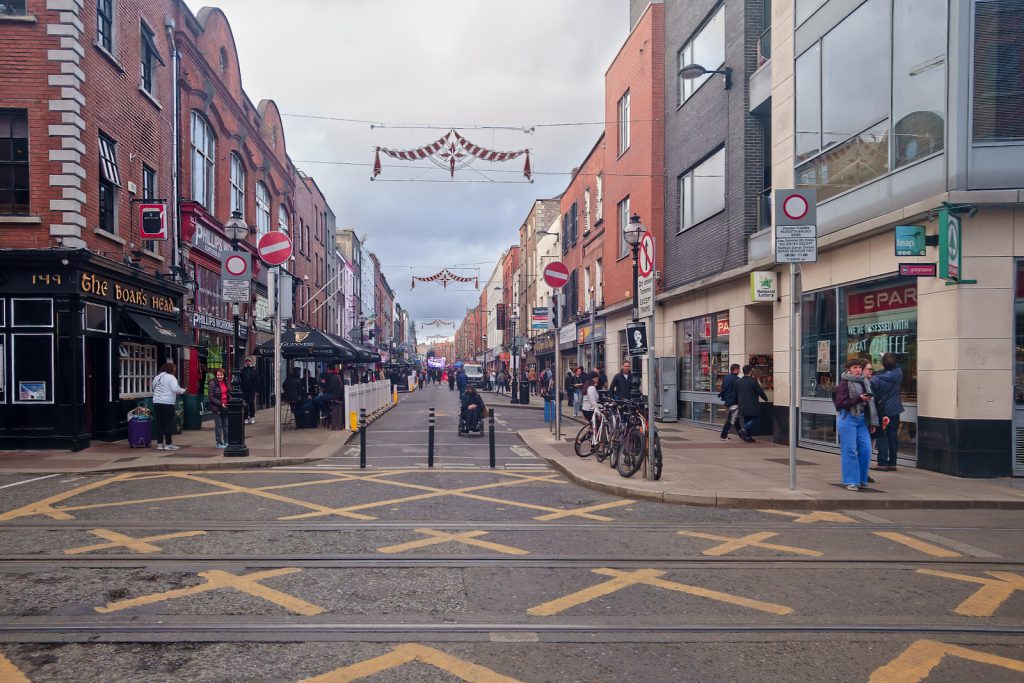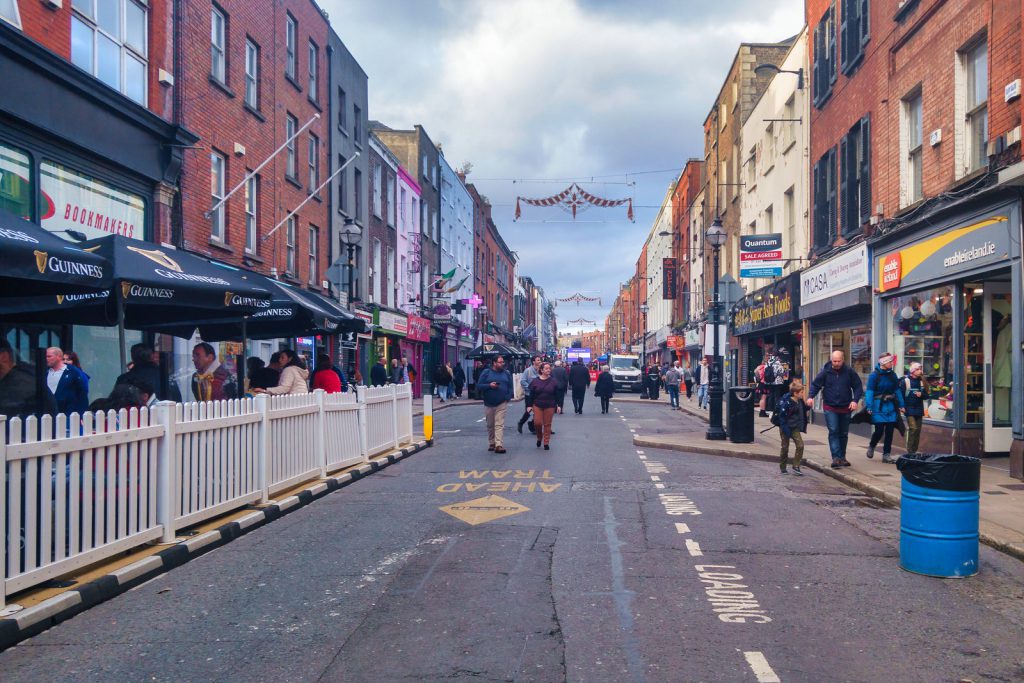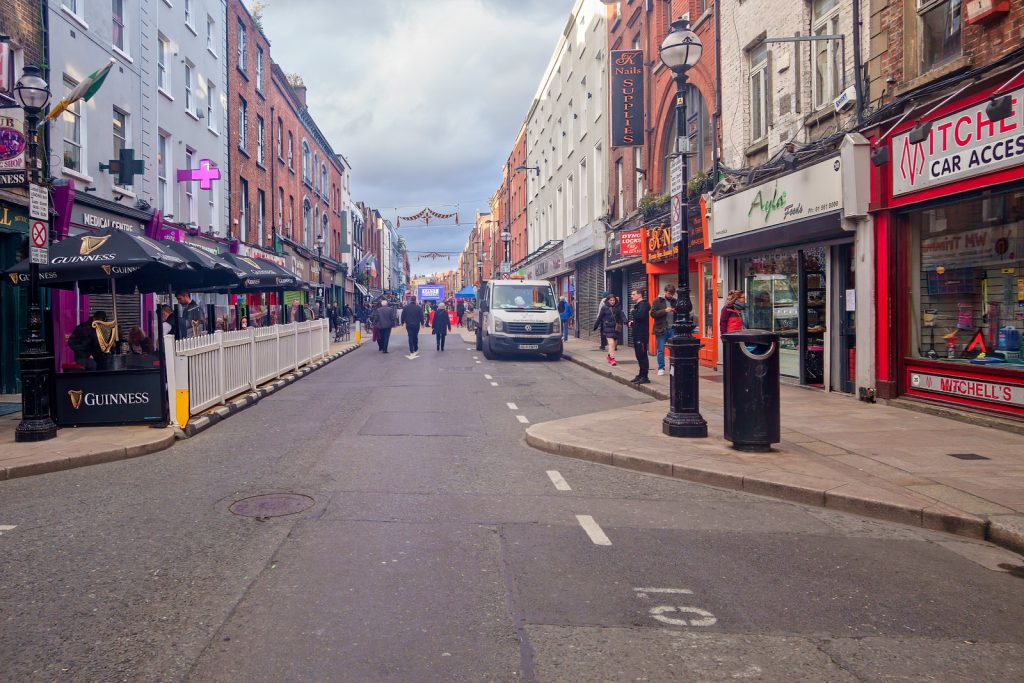NOW THAT CAPEL STREET IS PEDESTRIAN ONLY
When I lived in California one question that I was frequently asked was ‘do you have halloween in Ireland’ the second was ‘what a cute accent, where are you from’.
Today’s Halloween customs are thought to have been influenced by folk customs and beliefs from the Celtic-speaking countries, some of which are believed to have pagan roots. Jack Santino, a folklorist, writes that ‘there was throughout Ireland an uneasy truce existing between customs and beliefs associated with Christianity and those associated with religions that were Irish before Christianity arrived’. The origins of Halloween customs are typically linked to the Gaelic festival Samhain.
Here in Dublin city centre one of the most popular Halloween events, Bram Stoker Festival, returns from October 28 until 30.
As many as 40,000, if not more, people are expected to enjoy the first live edition of the event since 2019, which will feature Borealis, a free, mesmerising installation of light and sound which will create the illusion of an aurora borealis in Dublin Castle’s Upper Courtyard every night of the festival.
There will be Stokerland, the annual pop-up Victorian fun park in St Patrick’s Park as well as Spooky Stories at Marsh’s Library and other themed events.
Abraham Stoker (8 November 1847 – 20 April 1912) was an Irish author who is celebrated for his 1897 Gothic horror novel Dracula. During his lifetime, he was better known as the personal assistant of actor Sir Henry Irving and business manager of the Lyceum Theatre, which Irving owned. In his early years, Stoker worked as a theatre critic for an Irish newspaper, and wrote stories as well as commentaries. He also enjoyed travelling, particularly to Cruden Bay where he set two of his novels. During another visit to the English coastal town of Whitby, Stoker drew inspiration for writing Dracula. He died on 20 April 1912 due to locomotor ataxia and was cremated in north London. Since his death, his magnum opus Dracula has become one of the most well-known works in English literature, and the novel has been adapted for numerous films, short stories, and plays.
